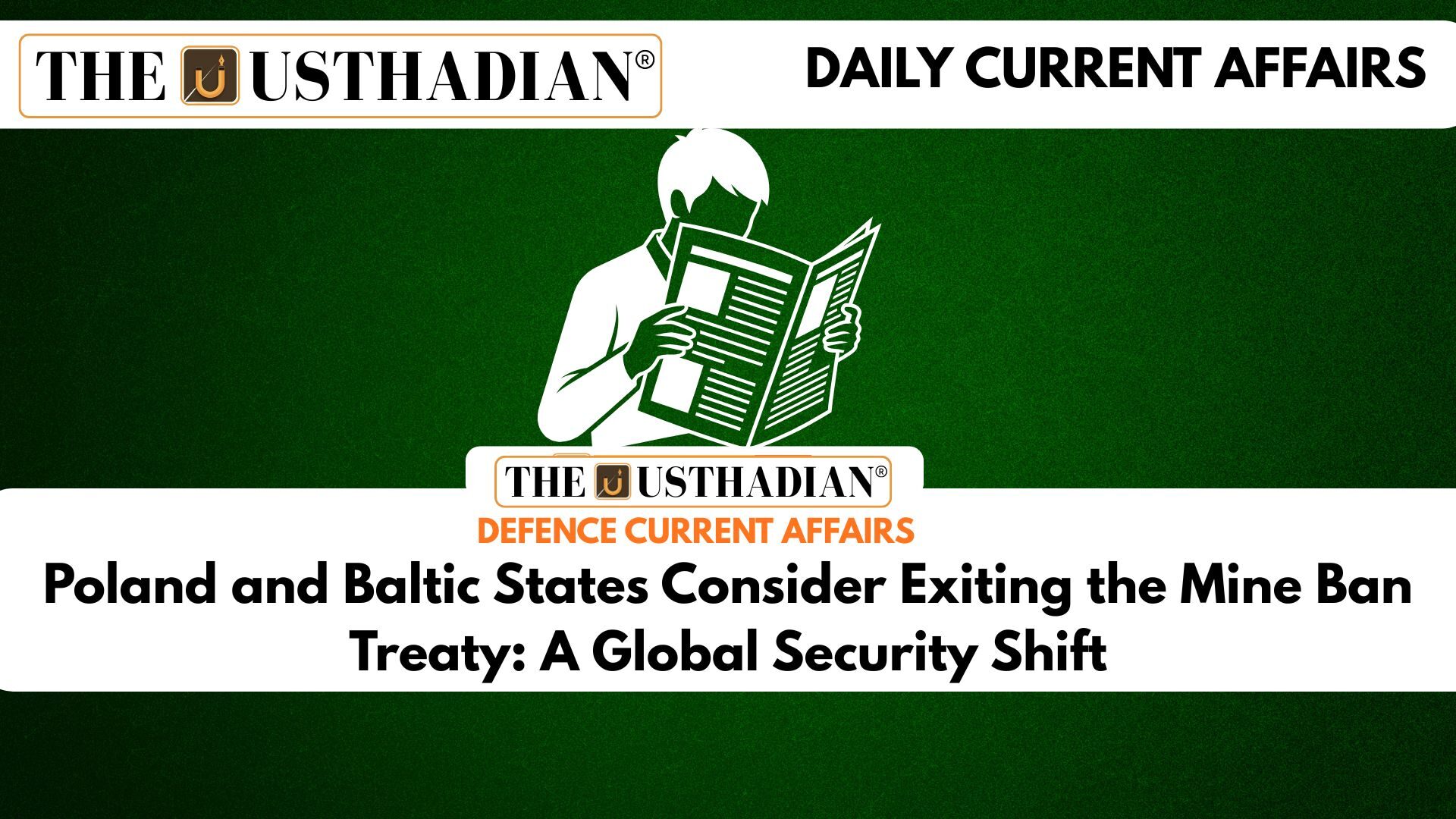Renewed Security Concerns in Eastern Europe
Poland and Baltic States Consider Exiting the Mine Ban Treaty: A Global Security Shift: Poland, Lithuania, Latvia, and Estonia are now considering withdrawing from the Ottawa Treaty, an international agreement that bans anti-personnel landmines. Their move comes amid growing fears of Russian aggression, especially after the invasion of Ukraine. These countries argue that landmines are a critical part of national defense, especially for small states bordering a powerful adversary. The decision reflects a shift from humanitarian focus to national security urgency.
What the Ottawa Treaty Actually Bans
Signed in 1997 and enforced from 1999, the Ottawa Treaty prohibits the use, production, stockpiling, and transfer of anti-personnel mines. It also mandates mine clearance and victim assistance. Over 160 nations have signed it, but major military powers like the US, China, India, Russia, and Pakistan have not. This weakens the treaty’s global impact, as many high-conflict zones lie outside its influence. These gaps raise concerns about fairness and enforcement.
Legal Loopholes and Controversies
While the treaty seeks to reduce human suffering, Article 20 of the Ottawa Convention bars countries from withdrawing if they are currently involved in armed conflict. This clause complicates the matter for countries like Ukraine, which remains a signatory but has received landmines from allies like the US. The situation reveals contradictions—some countries uphold the treaty in principle, but bend it in practice when conflict escalates.
The World’s Most Mined Nation: Ukraine
According to recent UN estimates, Ukraine is now the most mined country on Earth, overtaking former hotspots like Afghanistan. Landmines endanger civilians, ruin farmlands, and linger long after wars end. In many Ukrainian villages, residents fear simple tasks like fetching water or going to school due to hidden explosives. The human cost of mine warfare remains devastating and long-lasting.
Global Impact and Policy Shifts
This possible withdrawal by Poland and the Baltics may spark a domino effect, encouraging other vulnerable nations to rethink their participation in disarmament treaties. If more countries start to prioritize military readiness over humanitarian concerns, the global momentum toward arms control could weaken. This situation underlines a key dilemma—how to balance peacekeeping commitments with pressing national security needs.
STATIC GK SNAPSHOT
Poland and Baltic States Consider Exiting the Mine Ban Treaty: A Global Security Shift:
| Aspect | Details |
| Ottawa Treaty Name | Mine Ban Treaty (1997) |
| Came into Force | 1999 |
| Total Member States | 164 countries (as of 2025) |
| Not Signatories | United States, Russia, China, India, Pakistan |
| Key Provision | Bans use, production, stockpiling, and transfer of anti-personnel mines |
| Article 20 | Prohibits withdrawal during wartime |
| Most Mined Country (2025) | Ukraine |
| India’s Position | Not a signatory |
| Administering Body | International Campaign to Ban Landmines (ICBL), supported by UN |








